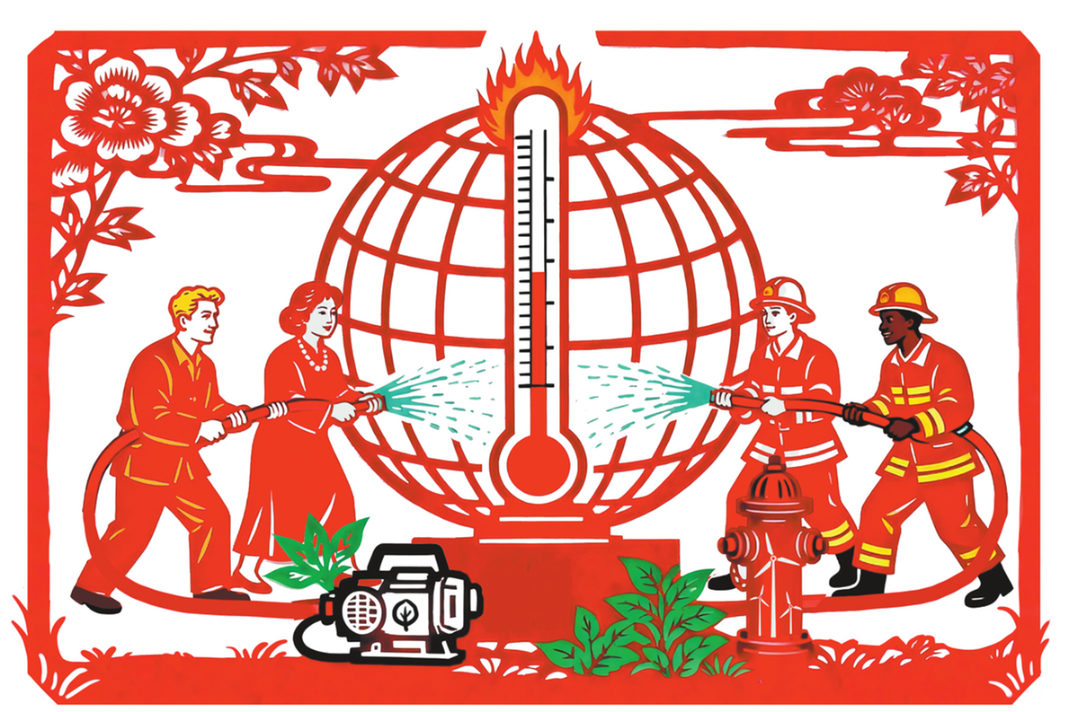Build Japan-China relations for next 50 years

Time to jointly promote the Asian century
By Lin Songtian
In the course of more than 2,000 years of friendly exchanges, Chinese and Japanese peoples have learned from each other's cultures, promoted mutual development and made important contributions to the progress of human civilization.
Since ancient times, China has regarded "peace", "harmony" and "amity" as the most precious factors of bilateral and multilateral relations. They used to be essential elements of Japan's culture, too, in the past.
In their long history, the peoples of the two countries have helped build the East Asian civilization, promoted the formation of Confucian culture, and developed "harmony without uniformity", believed in "being united and working in concert", and followed the Oriental philosophy of "people-first". Their spiritual ties and historical traditions, and the Oriental values they share should be passed down to the next generations.
However, in modern times, giving "peace", "amity" and "harmony" a silent burial, Japan embraced colonial thinking from Western powers to "disengage from Asia and integrate into Europe". This led to the rapid development of Japanese militarism, prompting the country to take the "evil path" of aggression, expansion and colonization of other countries.
Japan waged a heinous war against China, unleashing untold sufferings on the Chinese people and leaving the Japanese people distressed. History serves as a guide for the future. So China and Japan should use history as a mirror to look forward to the future, jointly promote peaceful development, seek lasting friendship and create a better future for the two countries.
The 21st century is the century of Asia. Over the past few decades, Asia has maintained overall stability and achieved rapid economic growth, which is called an "Asian miracle". The center of the world's gravity has been shifting from the Atlantic to the Pacific, and the East is rising and the West has likely declined.
A peaceful, stable and increasingly united Asia enjoying lasting prosperity is something the United States-led West does not want to see. That's why it is using the "divide and rule" tactic to incite ideological and bloc confrontations in order to sabotage the general environment of peace and friendship in Asia.
Facts show that the Cold War mentality, hegemonic policies and power politics are the main factors threatening global peace and stability. By triggering confrontations, forming cliques, bullying other countries and forcing them to take sides, some Western countries are driving the wagon of history backward. But their attempts are doomed to failure.
It is regrettable that some politicians in Japan seem eager to play to the tune of the US, and aggressively promote the so-called values diplomacy. By doing so, they will end up poisoning the atmosphere of peace and development in Asia, and force Japan to lose its independence and go down the wrong path again.
As the second- and third-largest economies in the world, China and Japan shoulder the responsibility of maintaining the sustainable development of Asia and leading Asian cooperation in the right direction. So the two countries should firmly oppose the interference of external forces in the region, demonstrate Asia's resilience, wisdom and strength, and build Asia into a region of peace and stability, and a key driver of global growth.
This year marks the 50th anniversary of the normalization of Sino-Japanese diplomatic relations. Half a century ago, the then leaders of the two countries, with great strategic wisdom and extraordinary political insight, made the important decision to normalize diplomatic ties, ending the postwar confrontation between the two sides and writing a new chapter of peace, friendship and cooperation.
Since then Sino-Japanese ties have forged ahead. Today, the Sino-Japanese relationship is one of the most closely intertwined bilateral ties with the widest areas of cooperation. While bilateral trade has jumped from less than $1 billion to a record high of more than $370 billion, the number of people traveling between the two countries had increased to more than 13 million before the COVID-19 pandemic broke out. And in recent years, the leaders of the two countries have reached an important consensus on developing bilateral ties that answers the needs of the new era.
People-to-people friendship has always been a cornerstone and source of strength for China-Japan relations. Even during trying times, friendly forces in the two countries have made important contributions to improving bilateral relations, including state-to-state relations, deepening mutually beneficial cooperation and promoting friendship.
Peace, friendship and cooperation between China and Japan are the general trend of the times and what people on both sides want, as President Xi Jinping said. Therefore, China and Japan should use the 50th anniversary of the normalization of diplomatic ties to promote bilateral as well as global development, continue to tread the "right path" of win-win cooperation for common development instead of adopting beggar-thy-neighbor policies, and jointly create an Asian century.
The author is president of the Chinese People's Association for Friendship with Foreign Countries.


































